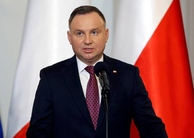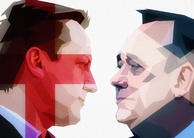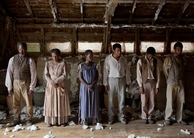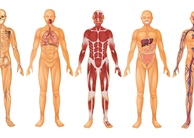Opinion:An Argument for Outlawing Genocide Denial
By
2009, Vol. 1 No. 12 | pg. 1/1
KEYWORDS:
More than half a century ago, famed philosopher George Santayana observed, “Those who cannot remember the past are condemned to repeat it.” In the 20th century alone, the world bore witness to the Holocaust in Europe, as well as genocide in the former Yugoslavia, Rwanda, and most recently, Darfur. In terms of history, these events occurred within a relatively short span of time, leading one to believe that remembrance alone is not the problem; when looking at the root causes that led to such mass atrocities, it is clear how powerful words and rhetoric truly can be. As such, it would be appropriate and beneficial for the European Union to outlaw genocide denial. To refute genocide is an attack on the psyche and morale of the society in which it occurred. It is an affront to the dignity of all the victims, both living and dead. To survive such an ordeal, or lose loved ones to such senseless violence, has an undeniable effect on the shaping of one’s character, personality, and general life experiences. If one is allowed to make claims that genocides did not in fact occur, this further adds to the suffering of those affected. Article 19 of the International Covenant on Civil and Political Rights (ICCPR) clearly states that freedom of expression may be restricted if it infringes upon the respect of the rights or reputations of others. Furthermore, this freedom may not be in conflict with preserving public order or morals. Genocide is a grave matter and exemplifies the absolute worst in, or shows its perpetrators to be devoid of, humanity. If individuals or groups are permitted to dismiss these acts, genocide is then trivialized, and a vicious cycle ensues. The ICCPR also states that, “Any advocacy of national, racial or religious hatred that constitutes incitement to discrimination, hostility or violence shall be prohibited by law.” While one could argue that a person denying a genocide or holocaust may be doing so out of sheer ignorance, it is often difficult, if not impossible, to determine one’s intent, thus the law cannot discriminate on such a basis and must make the law all-encompassing. Genocide denial would certainly incite hostility between deniers and believers. Since genocide is defined as “the deliberate and systematic destruction of an ethnic, racial, religious or national group," (UNHCR) refuting it is a clear bias against the targeted group, as outlined in the aforementioned Article. Lastly, Article 26 of the ICCPR guarantees protection against such discrimination to all.Laws are tangible, not abstract. They delineate what a person may or may not do and are generally meant to ensure one’s safety, both physical and mental. However, laws can also be symbolic. For example, burning the American flag is illegal. Such a law is not meant to prevent the waste of fabric, but rather, to preserve the integrity of the country and citizens the flag represents. Similarly, outlawing genocide denial is an expression of the collective conscience and a manifestation of the moral indignation such speech tends to cause. A ban on this type of language may not convince everyone that it is wrong or even prevent the erasure of such sentiments, but at the very least, it would show that such remarks are inherently wrong, from both a philosophical and historical standpoint. Though a genocide can be carried out in a short amount of time, one could surmise that its planning would take longer. The Nazis kept meticulous records throughout the duration of their regime in Germany. Though the United Nations did not intervene in Rwanda, it has now been shown that their was written evidence of what would become a genocide. With so much testimony, denying genocide is an affront to history. Many people dedicate their entire lifetime to the field of history, via study, writing, teaching, and so forth. Others become a part of history simply by what they are forced to endure. Therefore, it is disrespectful to gloss over such a segment of society, whether their historical attachments are professional, personal, or both. Certain components of history are not subjective and to rewrite it is doing a disservice to the present generation, as well as future generations, as they try to learn from the past, especially its mistakes. In addition to the ICCPR, justification for outlawing genocide denial can be found in the European Convention on Human Rights. Article 9 of the UCHR limit’s the freedom to manifest one’s beliefs as is necessary to protect the public order and morals. Discriminatory speech can quickly devolve into hate and hysteria, causing mass chaos, the polar opposite of public order. Moreover, Article 10 allows for the restriction of free expression for the protection of the reputation or the rights of others. Genocide denial isolates segments of society and inadvertently labels the majority as liars. The horrendous experience of genocide has had an effect on people throughout the world, via life and legacy. Such trauma transcends boundaries that are otherwise divisive and if nothing else, this commonality can help foster unity and cooperation amongst nations and individuals. Free speech is considered a quintessential component of a successful (liberal) democracy. As such, many would argue that putting limitations on it by outlawing genocide denial is the beginning of a slippery slope. However, one might also argue the opposite, that such a law is a step in the right direction. It would show people that actions have consequences. Such a ban could encourage public discourse and provide an impetus for people to become more aware of global events and perhaps even effect positive change. UN High Commissioner on Human Rights Suggested Reading from Inquiries Journal
Inquiries Journal provides undergraduate and graduate students around the world a platform for the wide dissemination of academic work over a range of core disciplines. Representing the work of students from hundreds of institutions around the globe, Inquiries Journal's large database of academic articles is completely free. Learn more | Blog | Submit Latest in Opinion |
















